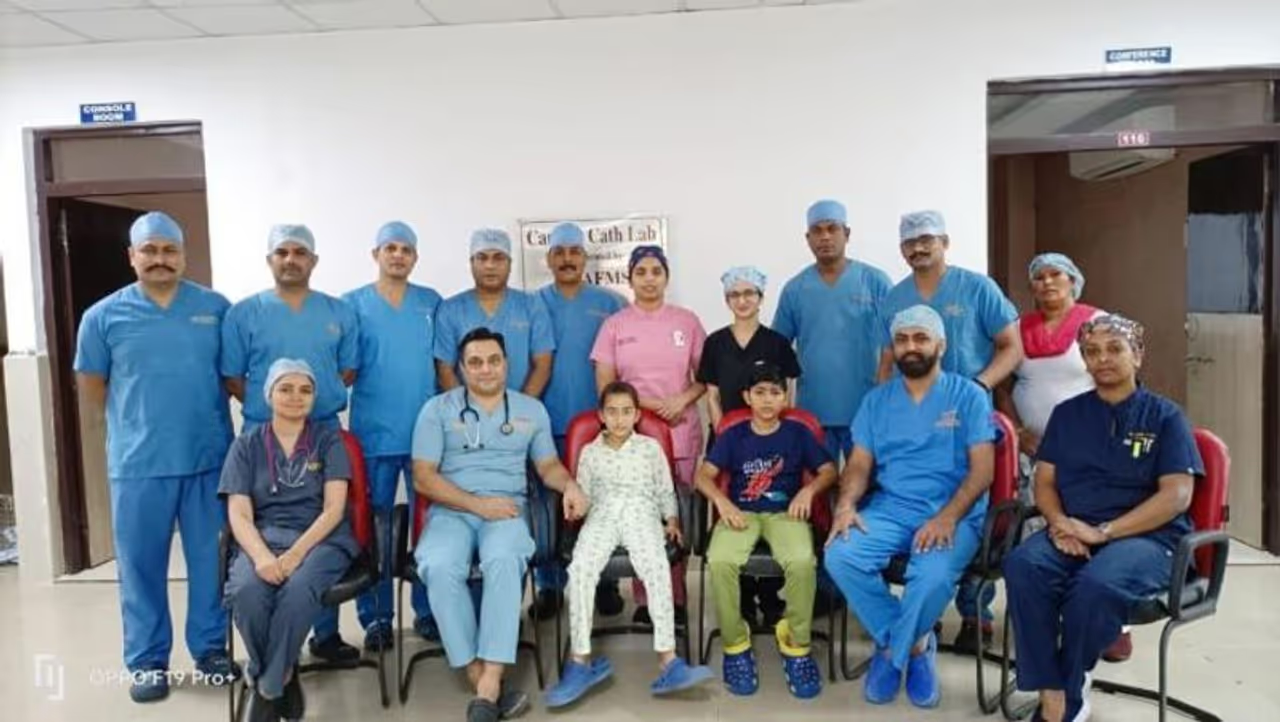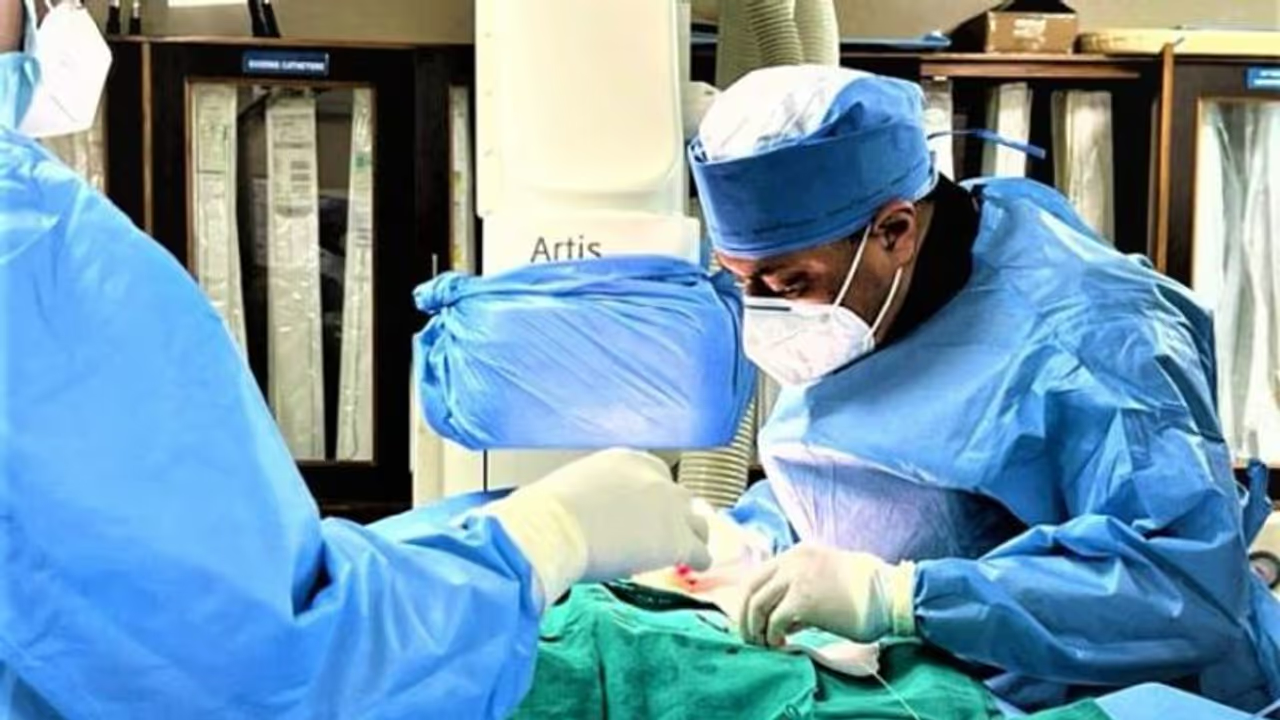The Armed Forces Medical Services (AFMS) achieved a significant milestone as its Pediatric Cardiology team at Army Hospital (Research & Referral) in New Delhi successfully performed a non-surgical transcatheter implantation of a cardiac (Pulmonary) valve in two children with congenital heart defects.
Showcasing its prowess in medical advancements, the Armed Forces Medical Services (AFMS) achieved a remarkable milestone when the Pediatric Cardiology team at Army Hospital (Research & Referral) in New Delhi recently executed a non-surgical transcatheter implantation of a cardiac (Pulmonary) valve in two children afflicted with congenital heart defects. This innovative procedure involved making a small incision in the groin area. The significance of this achievement lies in its successful application in the government sector, particularly for the youngest and smallest child in the country, an 8-year-old girl weighing a mere 28 kilograms.

This complex and groundbreaking intervention took place on October 28, led by the experienced guidance of Lt Gen Daljit Singh, DGAFMS, the most senior serving paediatrician in the Armed Forces, alongside Lt Gen Arindam Chatterjee, DGMS (Army), and Lt Gen Ajith Nilakantan, Commandant of Army Hospital (R&R).
To date, the team has conducted 13 cases of Pulmonary valve implantation within the past year, marking the highest number among the two government institutes in the country that have undertaken such cases.
Until the introduction of this procedure within AFMS by the Army Hospital (R&R) team on October 7, 2022, the cardiac (Pulmonary) valve replacement necessitated an open-heart bypass surgery. This traditional approach was not only painful and cumbersome but also posed significant risks of morbidity and mortality, in addition to prolonged hospitalization.
With this groundbreaking non-surgical procedure, patients can be discharged within 2-3 days post-intervention, devoid of any noticeable scarring on their bodies.

Why this procedure is significant
The introduction of this highly specialized non-surgical intervention in the Armed Forces and the government sector of the country marks a significant breakthrough.
It has created new possibilities for children in need of valve replacement, significantly improving their quality of life. This achievement represents a quantum leap in providing advanced cardiac care for children, ushering in a new era not only for AFMS but also for other government hospitals across the country, propelling them to new heights in the field of healthcare.
This milestone underlines the AFMS's commitment to pioneering medical techniques and its dedication to enhancing the well-being of patients, especially children suffering from congenital heart conditions.
